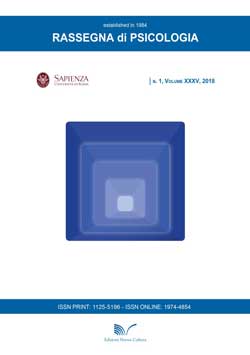Notes on moral development
DOI:
https://doi.org/10.13133/1974-4854/16683Keywords:
Control-Mastery Theory, moral development, guiltAbstract
Recent studies on moral development suggest the existence of a set of innate abilities which foster moral functioning. From a very early age on, children seem to show ability for moral discernment, together with emotions and pro-social motivations based on an innate propensity to empathize with people in difficulty and respect equity; moreover, they tend to feel guilty when they believe that they transgressed some basic “moral principles”. Evolutionary studies suggest that human morality stems from group selection. During its evolutionary history, human species met socio-ecological conditions that made group selection the dominant evolutionary force, thus favouring the development of cognitive abilities, emotions, and motivations essential for cooperation within groups. Also according to the CMT morality arises from the human need to preserve connectedness with other people - family members above all (attachment) - and the propensity to make them feel good (care). In sum, starting from an innate moral draft which is prereflexive and evolutionarily founded, morality and guilt would then be shaped by the emotionally relevant experiences people go through within their family and cultural environment.Downloads
Published
2018-03-30
Issue
Section
Articles
License
Copyright (c) 2018 Ramona Fimiani, Emma De Luca, Martina Rodomonti, Sara Fazeli Fariz-Hendi, Giampaolo Nicolais, Francesco Gazzillo

This work is licensed under a Creative Commons Attribution 4.0 International License.

